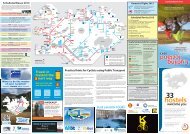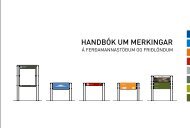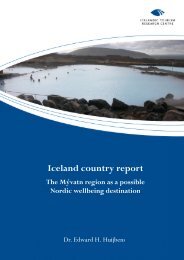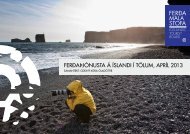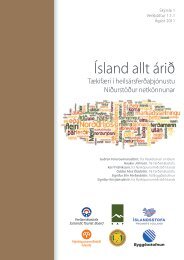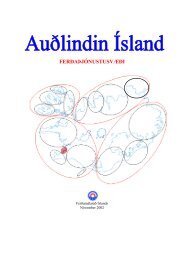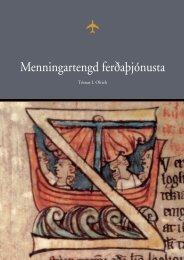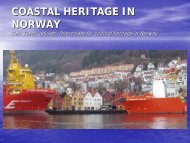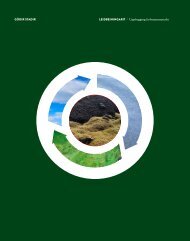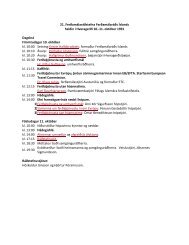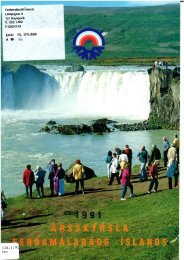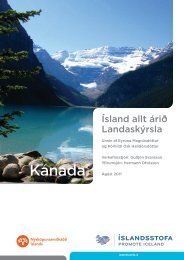Untitled
Untitled
Untitled
You also want an ePaper? Increase the reach of your titles
YUMPU automatically turns print PDFs into web optimized ePapers that Google loves.
senses, into various touristic meanings and values. This process of<br />
translating and transforming is necessary in order for goods, services and<br />
sights/sites on the Earth to be appropriated for tourism purposes and<br />
become tourism commodities. In this perspective, tourism lives a life inbetween<br />
meaning and matter where it continuously is involved in the deand<br />
reterritorialisation of the Earth.<br />
When we take such a conceptual step, recognising the fundament of<br />
the Earth and how tourism can move beyond the social through this hybrid<br />
life in between meaning and matter, we can better realise the earthly<br />
emergence of tourism images as imaginationings. It is now hopefully also<br />
easier to understand why we did not choose to simply approach images as<br />
visual, that we avoided giving them a reductionist treatment, and that we<br />
have instead insisted on placing them not only in broader socio-cultural<br />
contexts but also in an earthly geographical frame of imaginationings.<br />
With these conclusions in mind we are now ready to revisit the land<br />
of tourism studies.<br />
Tourism studies revisited<br />
In the early days of tourism studies there was a lack of attention from the<br />
social sciences. Tourism was considered a frivolous topic and an alliance<br />
with the tourism industry developed an agenda favouring a more<br />
hospitality and management oriented approach serving the particular needs<br />
of businesses directly concerned with tourism product development and<br />
promotion. This development is further compounded today by competition<br />
amongst institutions for students, which creates a need to make courses<br />
relevant to industry, but at the same time raises concerns over the quality<br />
of provision. These are ‘universal’ issues in higher education. But the<br />
extent to which these issues pervade tourism studies, a relatively new field<br />
in higher education, seems to surpass similar influences in mature<br />
disciplines in the humanities and social sciences (Aykioru, Tribe, and<br />
Airey 2009, p. 214).<br />
Viewed over a 30-year span, the field of tourism studies has changed<br />
in terms of research focus and methodological sophistication.<br />
Nevertheless, with respect to paradigmatic shifts Xiao and Smith (2006)<br />
confirm previous findings that the field is still dominated by the scientificpositivistic<br />
paradigm while there is also evidence indicating an emerging<br />
contribution from the interpretive paradigm and/or critical theory. What<br />
we want to do here is explicate further the emerging contribution from the<br />
91



